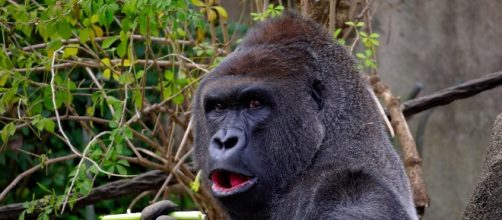Researchers from the University of California discovered a Herpes Virus in wild mountain gorillas that is very similar to the ones found in humans. The virus is almost identical to what they call Epstein-Bar virus (EBV).
The new study was published in the journal Scientific Reports. The EBV is a common herpes virus known to affect almost 90 percent of the human population. The virus can thrive in its host without manifesting any symptoms, which makes it harder to detect.
Epstein-Bar virus (EBV)
The virus could be threatening for people who have HIV/AIDS with a weaker immune system.
In some cases, having EBV with a fragile immune system could lead to cancer. The virus also causes some other conditions such as the "kissing disease" or mononucleosis.
Herpes in Mountain Gorillas
The study examined mountain gorillas, a species considered to be critically endangered. The apes, apparently have a similar version of the virus strain called lymphocryptovirus 1 (GbbLCV-1)
To come up with their findings, the researchers from Gorilla Doctors used the data from plants chewed by wild mountain gorillas. The samples were collected in Rwanda and Uganda. The saliva found on the leaves were analyzed.
By using this non-invasive sampling technique, the researchers discovered the gorillas' herpes virus strain is widespread.
What's more alarming is that, based on the sampling method, about 52 percent of baby gorillas are infected with the virus. It is comparable to human baby infections in underdeveloped countries.
Despite that, the researchers say that it poses a minimal health risk to the animal. It remains dormant in the bodies of the gorillas. But in dead infant gorillas, the effect of the virus is apparent. Some dead infants show signs of "pulmonary reactive lymphoid hyperplasia," a condition similarly found of human babies and children with HIV/AIDS who were infected with EBV.
Experts believe that the findings of the said study will help in the conservation of the critically endangered species and at the same time, can contribute to improving the ability to cure and detect the same condition in humans.
But they also added that different viruses react differently in species.
According to Tierra Smiley Evans from the UC Davis Health Institute in the School of Veterinary Medicine, the knowledge about how gorillas react to the virus will help researchers understand how the virus affects human babies, too. This is because gorillas have the nearest genetic composition to human beings.
But they also added that different viruses react differently in species. This means that the same virus may cause different health risk when it invades different kinds of species.


